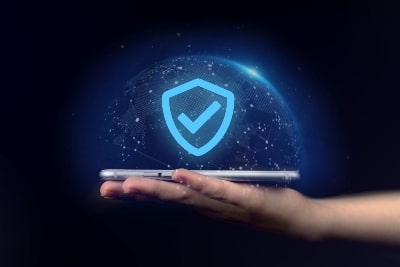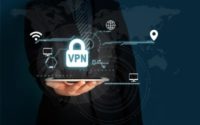Secure VPN Protocols for Online Privacy: Choosing the Best Options for Your Needs

In today’s digital world, online privacy is more important than ever. With cyber threats and hacking attempts increasing day by day, it is crucial to ensure your online activities are protected from prying eyes. One way to safeguard your privacy online is by using a virtual private network (VPN). A VPN creates a secure and private network connection between your device and the internet, preventing others from accessing your data. However, not all VPN protocols are created equal. In this article, we will discuss the most secure VPN protocols for online privacy and help you choose the best option for your needs.
Understanding VPN Protocols
A VPN protocol is the set of instructions used to establish a secure connection between your device and the VPN server. There are several VPN protocols available, each with its own strengths and weaknesses. Some of the most popular VPN protocols include:
- OpenVPN – This is the most widely used VPN protocol, and for a good reason. OpenVPN is open source, which means it has been thoroughly tested and audited by security experts worldwide. It uses industry-standard encryption algorithms, making it one of the most secure VPN protocols available.
- L2TP/IPSec – Layer 2 Tunneling Protocol (L2TP) is often paired with Internet Protocol Security (IPSec) to provide enhanced security. L2TP/IPSec is a good option for users who prioritize security but may experience slower internet speeds.
- PPTP – Point-to-Point Tunneling Protocol (PPTP) is one of the oldest VPN protocols still in use today. While it is fast and widely available, it is also considered one of the least secure VPN protocols due to its weak encryption.
- SSTP – Secure Socket Tunneling Protocol (SSTP) is a Microsoft protocol that uses SSL/TLS encryption. SSTP is a good option for Windows users, but it is not available on all platforms.
- IKEv2 – Internet Key Exchange version 2 (IKEv2) is a newer protocol that is becoming increasingly popular. It uses strong encryption and is known for its fast speeds and reliability.
Choosing the Most Secure VPN Protocol
When it comes to choosing the most secure VPN protocol for your needs, there are a few factors to consider. These include:
- Security – The most important factor to consider when choosing a VPN protocol is security. Look for protocols that use strong encryption and have been audited by security experts.
- Speed – While security is crucial, it’s also important to choose a VPN protocol that doesn’t slow down your internet connection too much. Some protocols may offer more security but at the expense of slower speeds.
- Platform compatibility – Make sure the VPN protocol you choose is compatible with the platform you will be using it on. Some protocols, like SSTP, are only available on specific platforms.
- Ease of use – Some VPN protocols may require more technical know-how to set up and use than others. If you’re not tech-savvy, look for protocols that are easy to use and set up.
In general, OpenVPN is considered the most secure VPN protocol due to its open-source nature and strong encryption. However, it may not always be the best option for users who prioritize speed over security. L2TP/IPSec is a good compromise between security and speed, while IKEv2 is a newer protocol that offers both speed and security.
In conclusion, choosing the most secure VPN protocol for your needs is essential to safeguard your online privacy. Consider factors such as security, speed, platform compatibility, and ease of use when selecting a VPN protocol. OpenVPN, L2TP/IPSec, and IKEv2 are some of the most secure VPN protocols available. With the right VPN protocol in place, you can rest assured that your online activities remain private and secure.
It’s also important to note that while VPNs can provide enhanced security and privacy, they are not foolproof. It’s still important to exercise caution when browsing online, especially when accessing sensitive information like banking or personal data. It’s also essential to choose a reputable VPN provider that has a proven track record of protecting their users’ privacy.
In summary, a VPN is a powerful tool that can enhance your online privacy and security. However, not all VPN protocols are created equal. By choosing a secure VPN protocol that meets your needs, you can enjoy peace of mind knowing your online activities remain private and protected.


